Research Highlights
Research Highlights
A selection of highlights culled from publications by HAO staff.

Equatorial Ionospheric Electrodynamics
The low latitude ionosphere is one of the dynamic regions of the Earth’s upper atmosphere. The morphology of this region is controlled by radiative and coupled chemical, neutral and plasma transport processes.
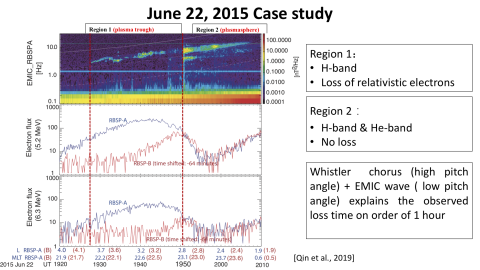
Statistical Dependence of EMIC Wave Scattering on Wave and Plasma Parameters
A recent statistical study (Qin et al., 2018) has suggested that not all electromagnetic ion cyclotron (EMIC) waves can scatter relativistic electrons. However, knowledge of the factors that influence the EMIC wave scattering efficiency is still limited in observations.
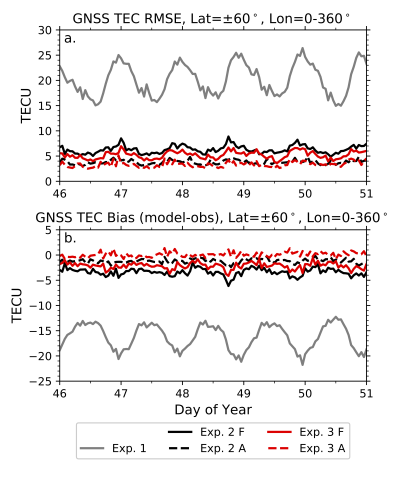
Assimilation of Ionosphere Observations in the Whole Atmosphere Community Climate Model with thermosphere-ionosphere eXtension (WACCMX)
The Earth’s upper atmosphere impacts a wide range of technologies, including satellite communication and navigation signals. Specification and forecasting of the upper atmosphere are critical for mitigating these effects. Improved specification of the state of the upper atmosphere can also improve scientific understanding of this region.

Planetary wave (PW) generation in the thermosphere driven by the PW-modulated tidal spectrum
The National Center for Atmospheric Research thermosphere-ionosphere-electrodynamics general circulation model (TIE-GCM) is used to conduct numerical experiments that isolate and elucidate a substantial modication of the quasi-6-day wave (Q6DW) above 110 km due to presence of the planetary wave (PW) modulated tidal spectrum.
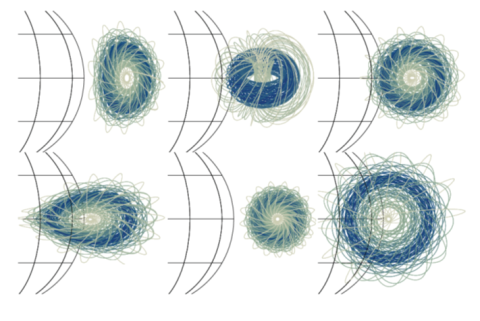
Convolutional Neural Networks for Predicting the strength of the Near-Earth Magnetic Field Caused by Interplanetary Coronal Mass Ejections
In this paper, regression-based deep convolutional neural networks (CNN), with 12 layers, are developed for predicting the maximal amplitude of the southward component of the near-Earth magnetic field from a passing interplanetary coronal mass ejection (ICME).
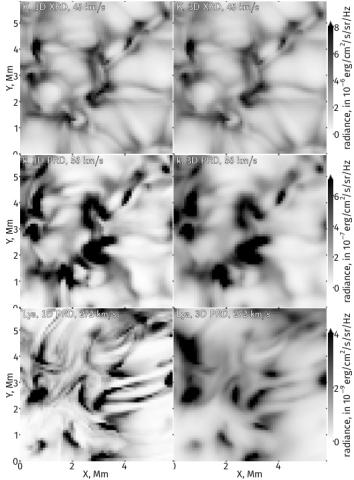
On the Cores of Resonance Lines Formed in the Sun's Chromosphere
We re-examine a 50+ year-old problem of deep central reversals predicted for strong solar spectral lines, in contrast to the smaller reversals seen in observations.
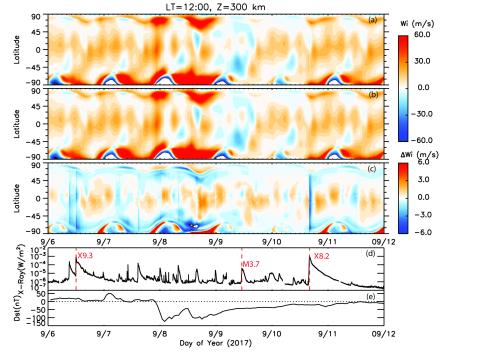
Responses of the Thermosphere and Ionosphere System to Concurrent Solar Flares and Geomagnetic Storms
We conducted numerical simulations to examine dayside thermosphere and ionosphere responses to concurrent solar flares and a geomagnetic storm during September 6th – September 11th, 2017, as well as the interplay of flare and storm effects. We found that E-region electron density response to the flares was much smaller inside the auroral oval than it was outside the auroral oval due to an extra source of ionization by auroral particle precipitation.
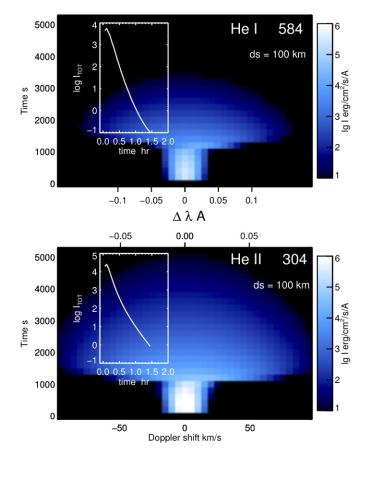
Neutral hydrogen, helium and solar and stellar coronae
In the context of the solar atmosphere, we re-examine the role of of neutral and ionized species in dissipating the ordered energy of intermediate-mode MHD waves into heat. We solve conservation equations for the hydrodynamics and for hydrogen and helium ionization stages, along closed bundles of magnetic field.
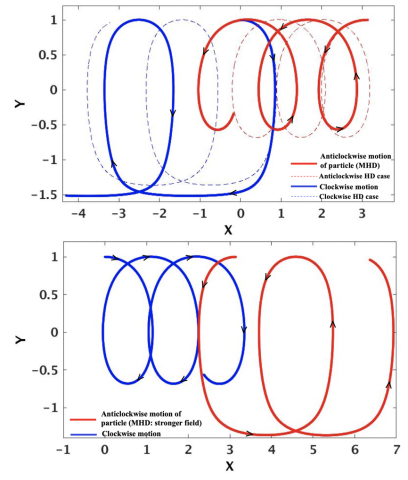
Physics Of MHD Rossby Waves In The Sun
Evidence of the existence of hydrodynamic and MHD Rossby waves in the Sun is accumulating rapidly. We employ an MHD Rossby wave model for the Sun in simplified Cartesian geometry, with a uniform toroidal field and no differential rotation, to analyze the role of each force that contributes to Rossby wave dynamics, and compute fluid particle trajectories followed in these waves.